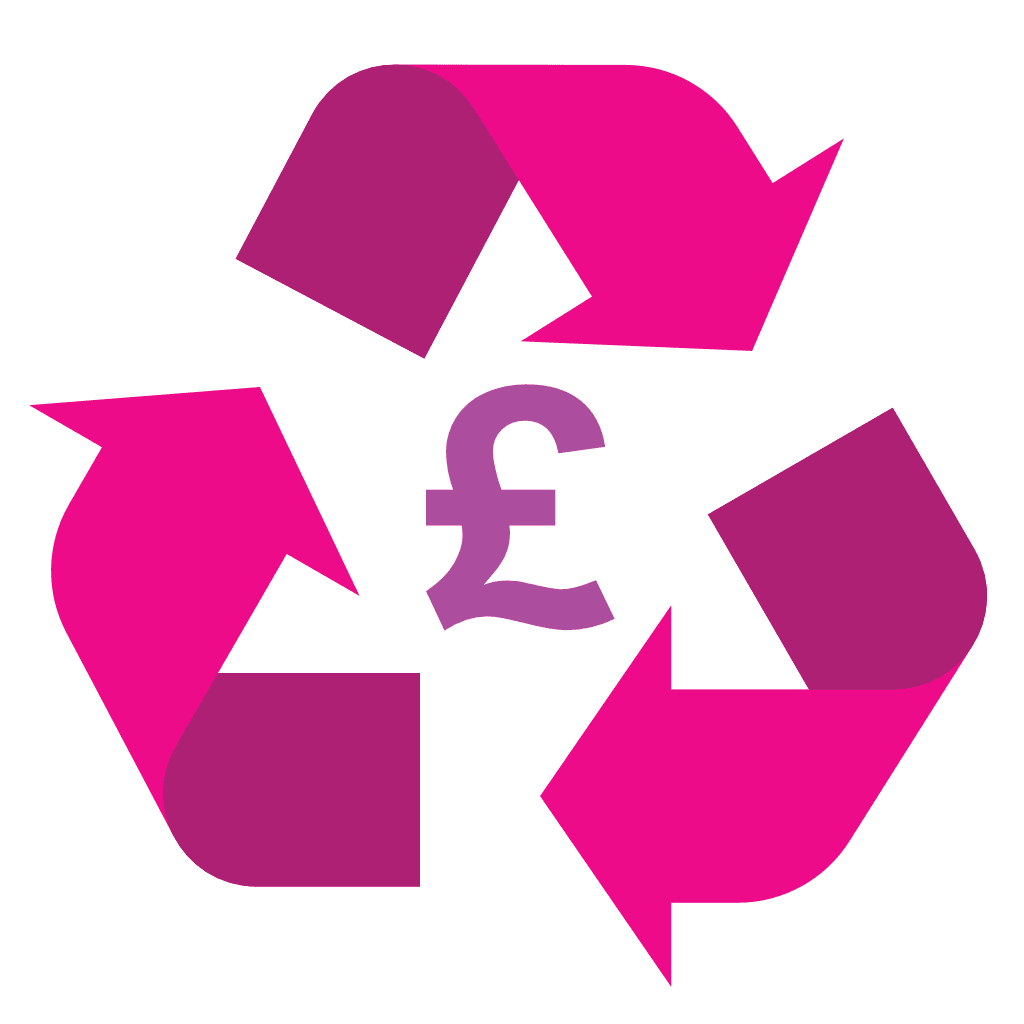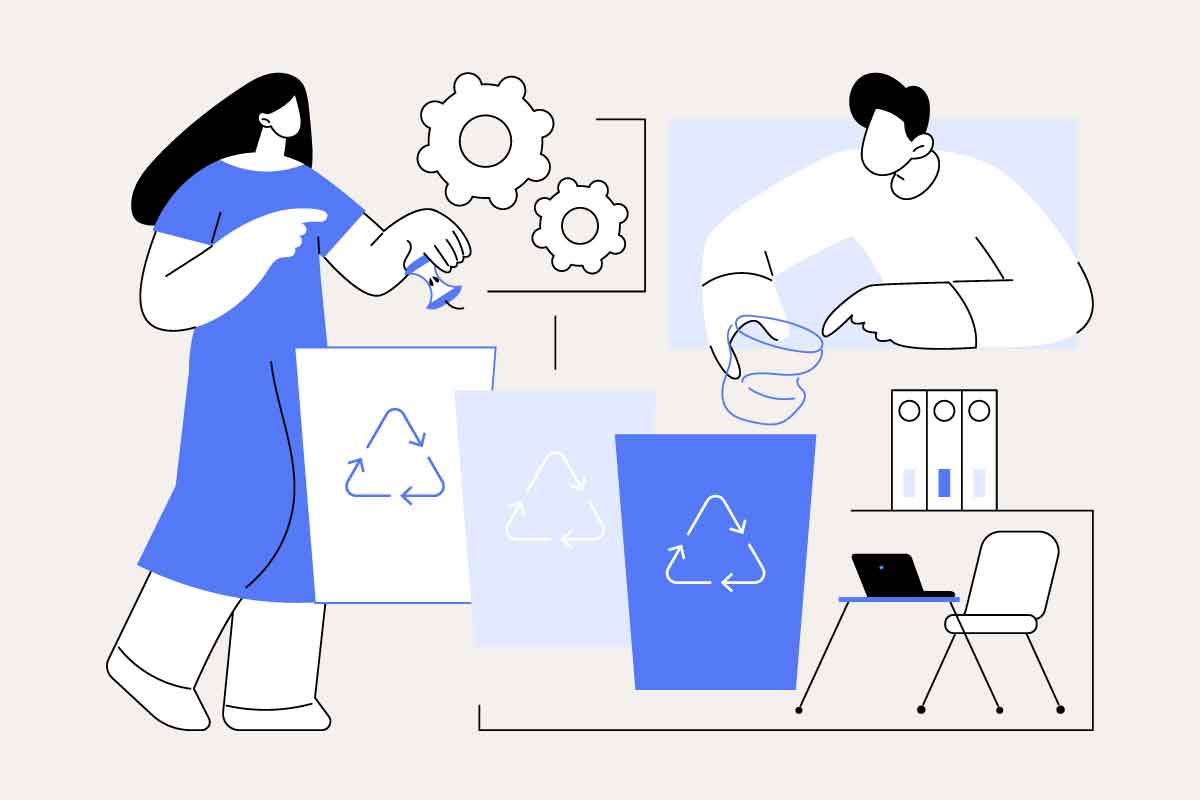When selecting the right commercial waste management provider for your business, two of the most prominent names in the UK are Biffa and Veolia. Both companies offer comprehensive waste management services, but understanding the nuances of their offerings, pricing, and environmental initiatives can help you make an informed decision. In this analysis, we’ll provide a detailed comparison of Biffa vs Veolia, focusing on their service portfolios, sustainability practices, customer support, and cost-effectiveness for UK businesses.
Biffa vs Veolia
| Criteria | Biffa | Veolia |
|---|---|---|
| Service coverage | Covers over 95% of UK postcodes, with a vast network | Extensive UK coverage with global operations |
| Key services | General waste collection, recycling, hazardous waste, food waste, confidential shredding, skip hire, consultancy | General waste collection, recycling, organic waste, hazardous waste, construction and demolition waste, consultancy |
| Sustainability initiatives | Focuses on the circular economy, operates the largest UK plastics recycling facility, aiming for 50% recycling by 2030 | Strong focus on zero waste to landfill, energy-from-waste, and advanced material recovery facilities (MRFs) |
| Waste-to-energy solutions | Converts non-recyclable waste to energy through waste-to-energy plants | Converts waste to energy, particularly non-recyclable waste, through advanced energy recovery solutions |
| Recycling capabilities | Specialises in plastic, paper, cardboard, glass, metals, and more | Advanced recycling solutions, including complex waste streams and organic waste |
| Industries served | Hospitality, retail, healthcare, manufacturing, and more | Retail, healthcare, manufacturing, public sector, and more |
| Technology used | Standard recycling and waste collection technologies | Advanced waste recovery technologies, including MRFs and energy recovery plants |
| Environmental focus | Circular economy solutions, reducing landfill usage | Zero waste to landfill focus, cutting-edge sustainability measures |
| Pricing structure | Competitive pricing, scalable services with bundled options for SMEs and large businesses | Premium pricing, long-term savings through sustainability and resource recovery |
| Customer support | Online portal for waste tracking, dedicated support team, flexible collection schedules | Bespoke solutions with strong sustainability consultancy, online portal for waste tracking |
| Flexibility | Highly flexible with scalable services for small and large businesses | Tailored solutions for complex waste streams and sustainability goals |
| Best suited for | Small to large businesses looking for cost-effective and flexible waste management solutions | Larger businesses or those with a strong focus on sustainability and environmental impact |
| Strengths | Wide coverage, competitive pricing, strong focus on recycling | Advanced sustainability technologies, zero waste to landfill, high environmental standards |
| Weaknesses | Less technologically advanced in waste recovery compared to Veolia | Higher upfront costs, potentially not as cost-effective for small businesses |
| Contracts | Flexible contracts based on service needs, tailored for SMEs and large businesses | Bespoke contracts tailored to complex waste management needs, often suited for larger businesses |
Overview of services
Biffa
Biffa is one of the leading waste management companies in the UK, offering a broad range of services tailored to businesses of all sizes. They provide waste collection, recycling, landfill services, and energy-from-waste solutions. Biffa’s network covers more than 95% of UK postcodes, making it a highly accessible option for businesses across the country.
Key services include:
- General waste collection
- Recycling services (including paper, cardboard, glass, plastic, and metals)
- Hazardous waste disposal
- Food waste management
- Confidential waste shredding
- Skip hire and container management
- Waste audits and consultancy services
Biffa also focuses on creating circular economy solutions, helping businesses reduce waste and increase recycling rates through bespoke programmes. They offer industry-specific services, including solutions for the hospitality, retail, healthcare, and manufacturing sectors.
Veolia
Veolia is a global leader in waste management and environmental services, operating in multiple sectors, including water and energy services. In the UK, Veolia provides tailored waste management services to businesses of all sizes. Their focus is on sustainability, resource recovery, and reducing environmental impact.
Key services include:
- General waste collection and recycling
- Organic waste management (including food and garden waste)
- Hazardous waste management
- Industrial and commercial waste services
- Construction and demolition waste handling
- Waste-to-energy services
- Bespoke waste audits and sustainability consultancy
Veolia’s strong focus on sustainability is reflected in their advanced waste recovery processes and commitment to achieving zero waste to landfill. They provide sector-specific services and solutions, including retail, healthcare, manufacturing, and public sector industries.
Recycling and sustainability initiatives
Biffa’s sustainability initiatives
Biffa has made significant strides in sustainability through its recycling and resource recovery programmes. They operate the UK’s largest plastics recycling facility and have a strong focus on diverting waste from landfills. Biffa aims to recycle 50% of all waste they collect by 2030, helping businesses reduce their carbon footprint.
Their circular economy approach encourages businesses to view waste as a resource. Biffa works closely with clients to design waste management programmes that prioritise recycling and reuse, reducing reliance on virgin materials.
Key sustainability programmes include:
- On-site segregation and recycling support
- Closed-loop recycling for plastics and other materials
- Waste-to-energy services, converting non-recyclable waste into energy
- Carbon footprint reduction consultancy for businesses
Veolia’s sustainability initiatives
Veolia is renowned for its commitment to sustainability, with a strong focus on transforming waste into valuable resources. Their operations aim to achieve zero waste to landfill by leveraging cutting-edge waste recovery technologies and energy generation solutions.
Veolia promotes a circular economy by turning waste into new materials or energy, thus reducing the need for landfilling. They provide sustainability consultancy to help businesses optimise their waste management strategies and contribute to the reduction of greenhouse gas emissions.
Key sustainability programmes include:
- Material recovery facilities (MRFs) for recycling complex waste streams
- Energy-from-waste facilities that generate power from non-recyclable waste
- Organic waste processing, turning food waste into compost or bioenergy
- Tailored sustainability consultancy services for businesses
Biffa vs Veolia pricing and cost-effectiveness
Biffa pricing
Biffa’s pricing structure depends on the type and volume of waste generated, the frequency of collections, and the location of the business. They offer tailored quotes based on your specific waste management needs, with flexible contracts available for SMEs and larger businesses.
One of Biffa’s strengths is its scalability. Whether you’re a small business requiring simple waste collection or a large enterprise needing a full recycling and waste-to-energy solution, Biffa can accommodate various needs while keeping costs competitive. Their pricing model includes bundled services, making it easier to manage waste costs under one contract.
Veolia pricing
Veolia’s pricing is also highly variable depending on the waste services you require. They provide bespoke quotes based on the type of waste, volume, collection frequency, and any additional services like recycling or waste audits. Given their focus on sustainability, Veolia often works with clients to implement cost-saving measures through recycling and energy recovery solutions.
Veolia is slightly more premium-priced due to the advanced technologies they use in waste recovery and their focus on reducing environmental impact. However, businesses that prioritise sustainability may find the long-term cost savings in carbon reduction and recycling initiatives worth the investment.
Customer support and flexibility
Biffa
Biffa is known for its wide-reaching customer support network, with a dedicated team for large accounts and an online portal that allows businesses to manage their waste collections, invoices, and reports in one place. Biffa offers flexibility in collection schedules and services, making it suitable for both small and large businesses.
Their waste audit services help businesses identify areas where they can reduce waste and improve recycling, providing a hands-on approach to managing waste streams.
Veolia
Veolia offers a strong customer support system with tailored account management for larger clients. Their expertise in sustainability and resource recovery is often highlighted in their consultancy services, helping businesses implement best practices in waste management. Veolia’s portal offers similar functionality to Biffa’s, allowing businesses to monitor their waste collection schedules and recycling rates.
Veolia’s focus on bespoke waste solutions provides more flexibility for businesses with complex waste streams or sustainability targets.
Key differences – Biffa vs Veolia
- Geographical coverage: While both companies offer extensive UK coverage, Biffa’s network is slightly more widespread, making it easier to access services in remote areas.
- Sustainability: Veolia has a stronger focus on cutting-edge sustainability solutions, such as energy recovery and advanced recycling technologies, making it ideal for businesses looking to prioritise environmental goals.
- Pricing: Biffa tends to be more cost-effective for smaller businesses or those with straightforward waste management needs. Veolia, on the other hand, may appeal more to businesses seeking long-term savings through sustainability initiatives.
- Technology: Veolia’s use of advanced recovery technologies and waste-to-energy services might offer a more technologically sophisticated solution for businesses with specific sustainability goals.
Conclusion – Biffa vs Veolia
Choosing between Biffa vs Veolia for your business’s commercial waste solution ultimately depends on your priorities.
- Biffa offers a more accessible, cost-effective option for businesses seeking reliable waste collection and recycling services, especially for smaller operations.
- Veolia, with its sustainability-driven approach and advanced waste recovery technologies, is better suited to larger enterprises or businesses with a strong focus on reducing environmental impact.
If your business places a high value on sustainability and long-term waste reduction strategies, Veolia’s advanced technologies and environmental focus may be the right choice. On the other hand, if you’re seeking a flexible, cost-effective waste management solution with wide coverage across the UK, Biffa could be the perfect fit.
FAQ
Biffa offers broader coverage, serving over 95% of UK postcodes, making it highly accessible for businesses across the country. Veolia also provides extensive UK coverage but is particularly known for its global presence and ability to service large, complex operations.
Veolia leads in advanced waste recovery technologies, particularly in energy-from-waste and material recovery facilities (MRFs). Biffa offers robust recycling solutions, especially in plastics, but Veolia’s cutting-edge tech makes it more suited to businesses seeking sophisticated waste recovery solutions.
Biffa tends to be more cost-effective, particularly for smaller businesses or those needing basic waste collection and recycling services. Veolia, while slightly more expensive, offers long-term savings through advanced sustainability and resource recovery solutions.
Both companies emphasise sustainability, but Veolia has a stronger focus on zero waste to landfill and energy recovery. Biffa also prioritises recycling and circular economy solutions, aiming to recycle 50% of collected waste by 2030, but Veolia’s cutting-edge sustainability efforts are more advanced.
Biffa is generally better for small businesses due to its flexible, scalable services and competitive pricing. Veolia’s advanced sustainability solutions make it ideal for larger companies, but smaller businesses may find Biffa’s more straightforward services and pricing easier to manage.
Both companies offer strong customer support. Biffa provides an easy-to-use online portal and flexible collection schedules, while Veolia offers tailored account management with a focus on sustainability consultancy. For businesses with specific sustainability goals, Veolia may provide more hands-on support.
Veolia excels in handling complex waste streams, offering advanced recovery technologies and bespoke solutions for industries with challenging waste types. Biffa is also capable of managing a variety of waste, but Veolia’s focus on resource recovery gives it the edge in more intricate waste management.
Veolia is more advanced in waste-to-energy solutions, using cutting-edge technologies to convert non-recyclable waste into energy. Biffa also offers waste-to-energy services, but Veolia’s established expertise in this area makes it the preferred choice for businesses prioritising energy recovery.
Biffa has a strong circular economy focus, particularly in plastics recycling and reducing landfill dependency. Veolia also supports a circular economy, with even more emphasis on transforming waste into resources through material recovery facilities and energy-from-waste plants.
Both companies provide industry-specific waste management services. Biffa caters to hospitality, retail, and manufacturing sectors, among others. Veolia also serves a wide range of industries, with tailored solutions for healthcare, retail, manufacturing, and the public sector, focusing on complex and sustainability-driven needs.

